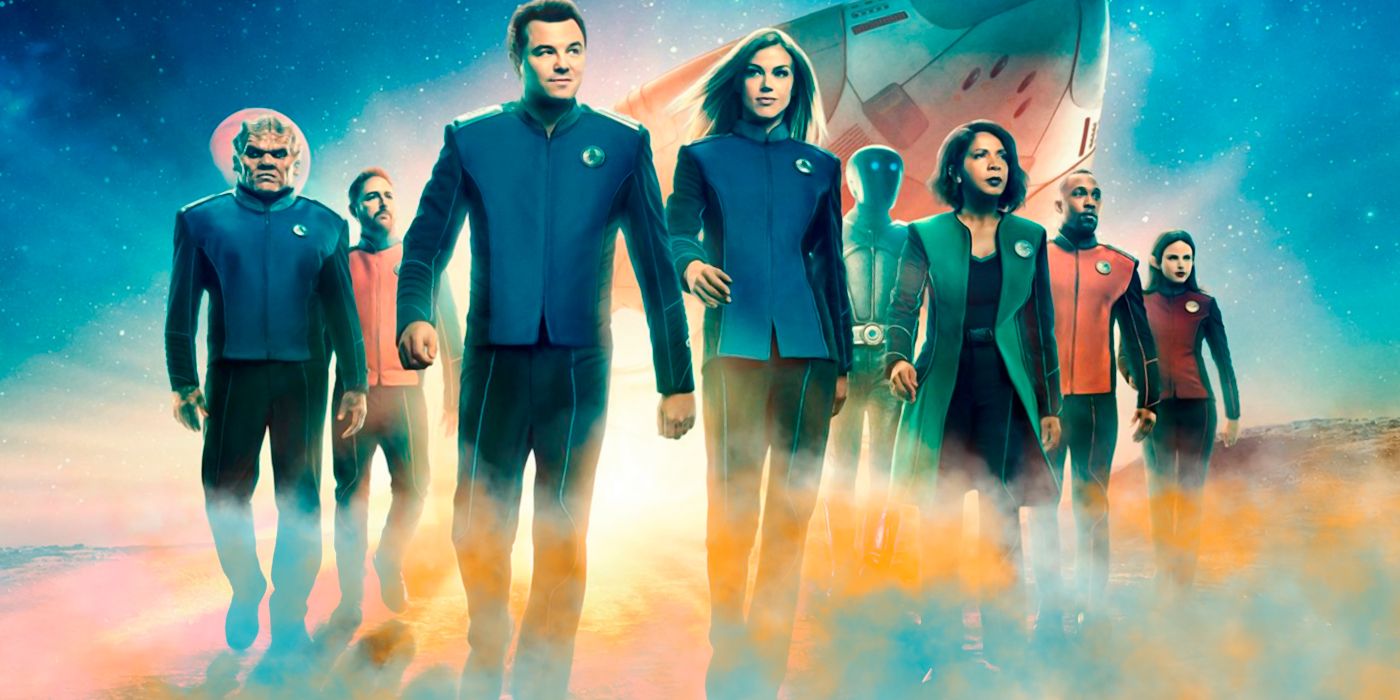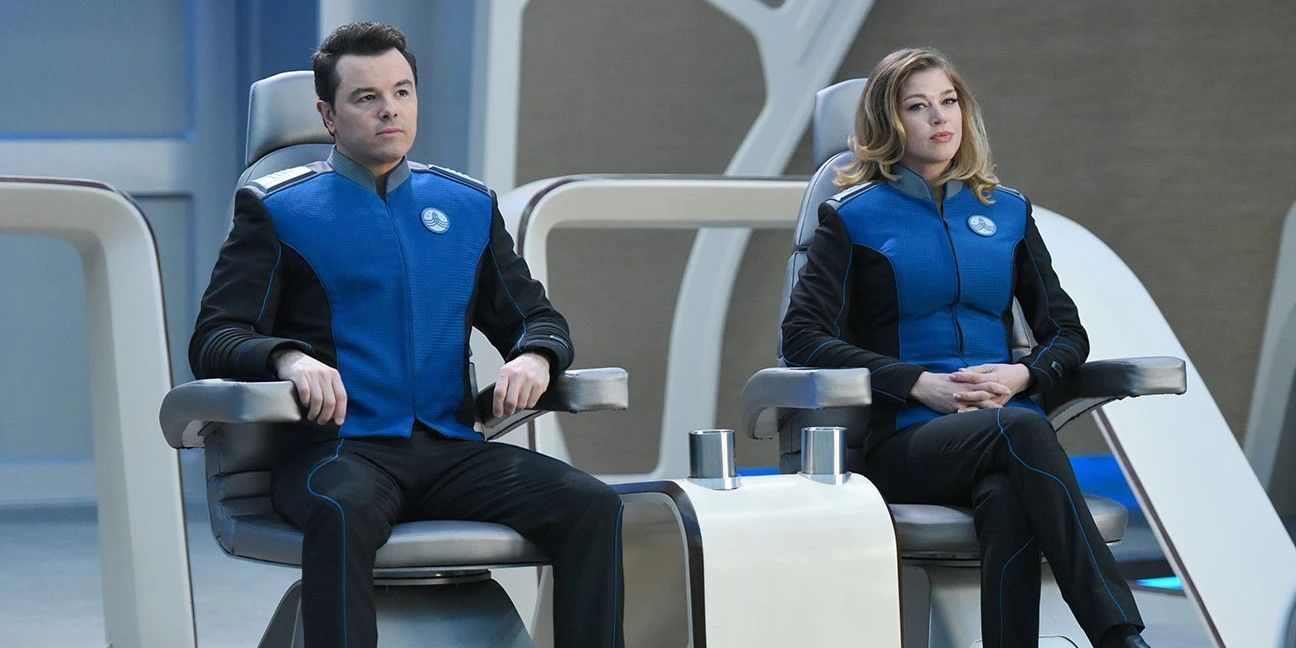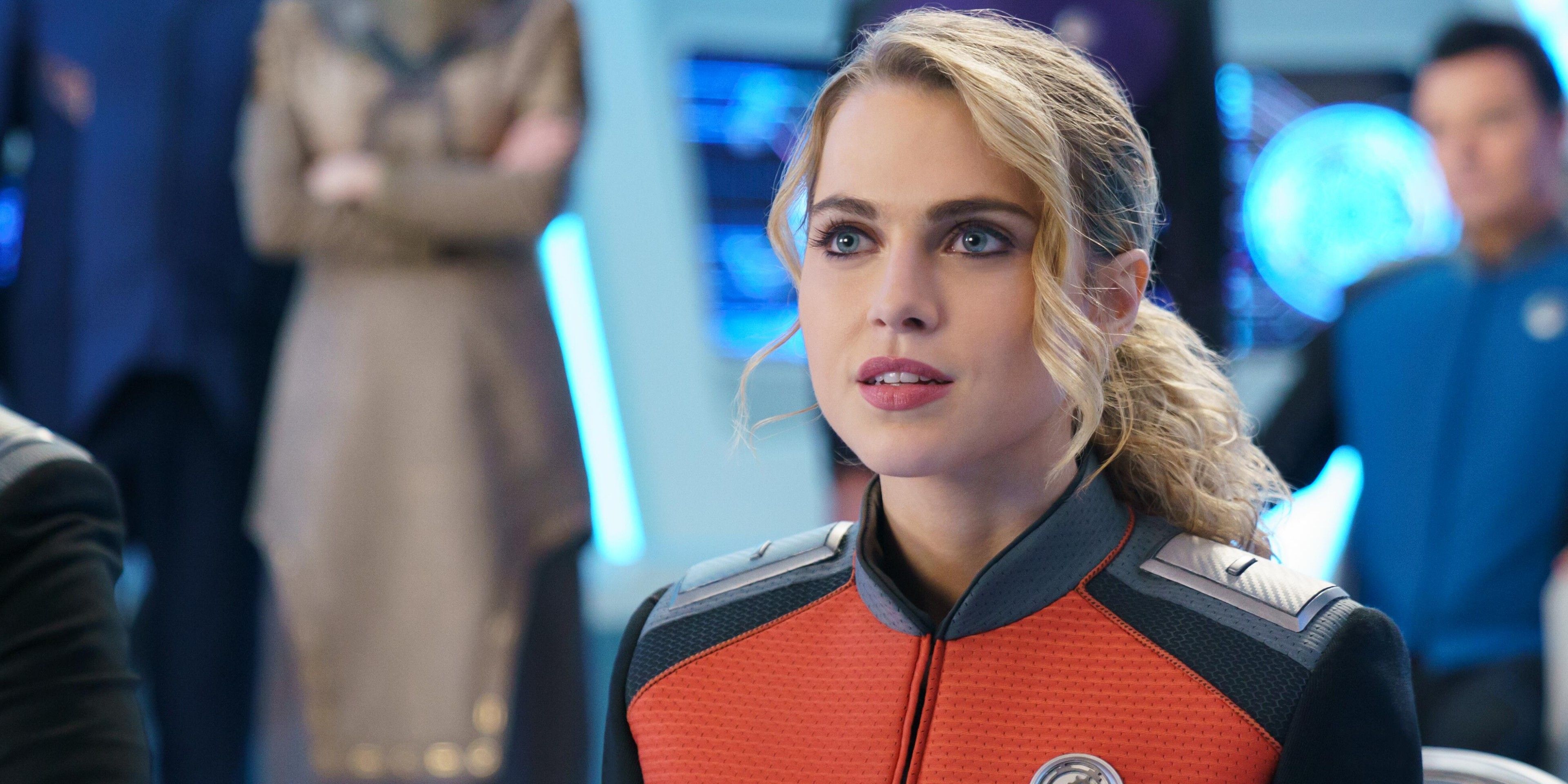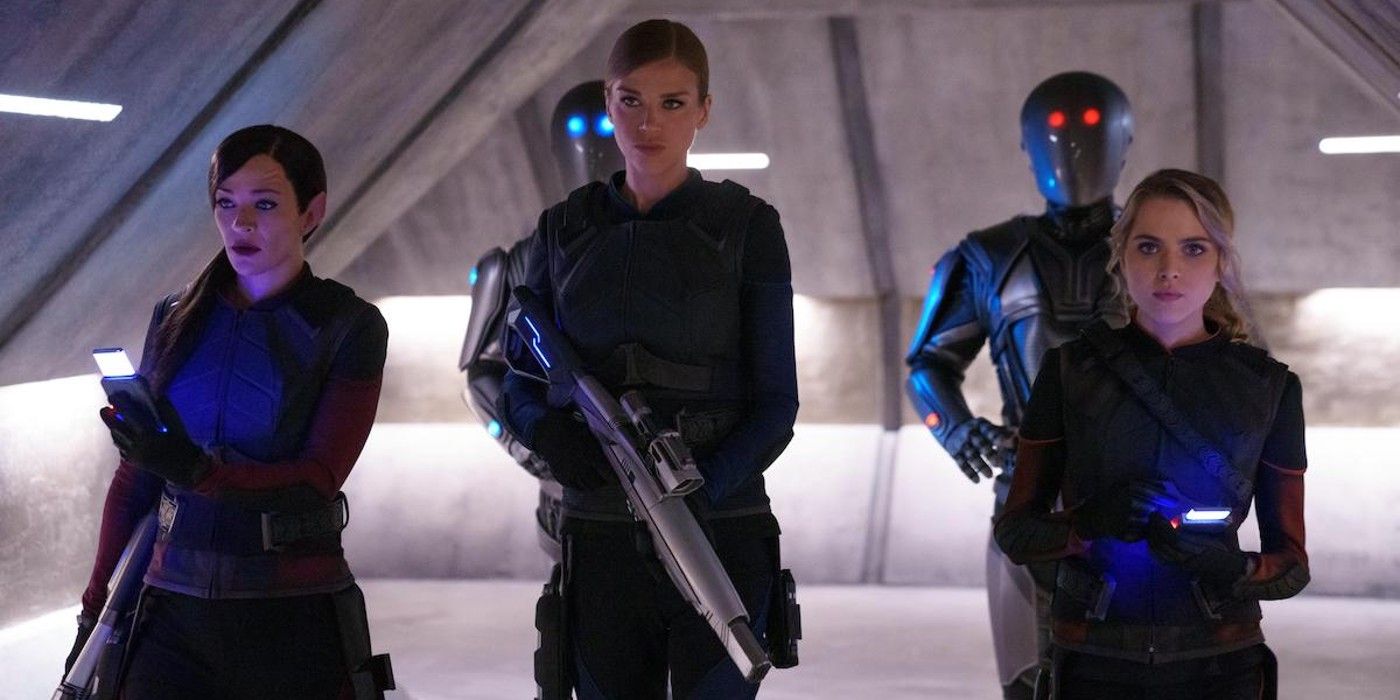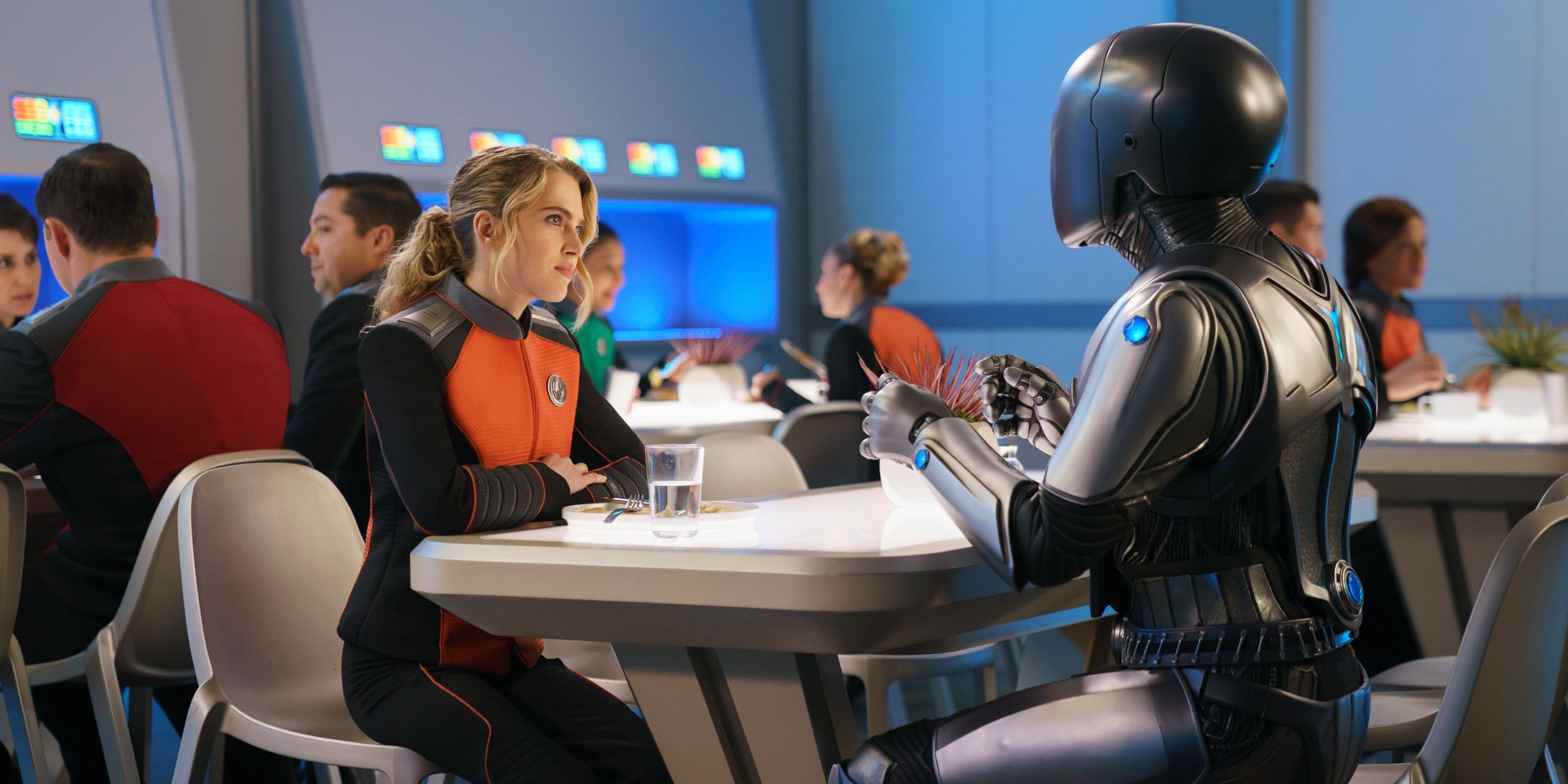The following contains spoilers for The Orville Season 3, Episode 9, "Domino," now streaming on Hulu.
After an absence of more than two years, The Orville finally returned on Hulu instead of its native Fox, and it was worth the wait. Seth MacFarlane's space opera transformed in Season 3 from goofy Star Trek homage to a strong, intelligent science fiction show. Having built a bigger world with deeper themes, the series can now stand comfortably alongside the best the genre has to offer.
The show's future is once again up in the air. Hulu has yet to renew or cancel the series, while MacFarlane hopes that recently being added to Disney+ will increase viewership enough to justify Season 4. But a fourth season of The Orville isn't just something that viewers want. It's something that science fiction television desperately needs to survive.
When The Orville was announced in 2017, the reaction ranged from mild curiosity to outright rejection. Many would-be viewers felt that the show, pitched as a Star Trek parody slash homage, would be MacFarlane doing The Naked Gun in space with a fair amount of Family Guy humor thrown in for good measure. The show's initial trailers, whch contained jokes about urination and pratfalls aplenty, did little to inspire confidence.
But once the show premiered, it was actually good. Then, in the ensuing weeks, something extraordinary happened. The Orville went from "not bad" to "great." While some fans miss the goofy humor that was more prevalent through the first two seasons, it's clear that the series found its footing once it moved beyond that light-hearted attitude and started using its compelling cast of characters to ask challenging questions and address contemporary issues.
Season 1, Episode 7, "Majority Rule" looked at society's social media addiction. Season 1, Episode 12, "Mad Idolatry" examined religion. The three-season arc involving Bortus's child Topa -- born female but surgically made male in keeping with their species' tradition -- has been one of the most well-handled storylines about gender identity on television. Other sci-fi shows also use their plots as allegories to explore social issues, but what separates The Orville from its contemporaries is also what makes it important to the genre's future: hope.
It's common in today's sci-fi to present a bleak, almost nihilistic view of the future. The Expanse shows a universe riddled by division and corruption, with humans living in virtual squalor in the solar system's asteroid belt. Even the much-vaunted Star Trek, long the bastion of future optimism, has leaned into a darker, heavier vision of tomorrow. But The Orville bucked tradition by daring to show a future where, even in the face of war, tragedy and impending disaster, people still saw the best in each other.
Season 3 unfolded against the backdrop of a war with the Kaylon, a species of AI lifeforms who have a grudge against their human creators. In Season 3, Episode 9, "Domino," the Planetary Union devised a doomsday weapon that had the power to wipe out the Kaylon for good. However, rather than use it to commit genocide, MacFarlane's character Ed Mercer wanted to use it as a bargaining chip in a bid for peace. Even when threatened with annihilation, the characters on The Orville opted to hope for a better tomorrow.
One of the other main story arcs in Season 3 was that of new crew member Charly Burke, who had lost the woman she loved to the Kaylon. Throughout the season, she grappled with her hatred of Kaylon crew member Isaac, holding him indirectly responsible for her lover's death. Yet when Isaac deactivated himself to spare the crew any further pain in Season 3, Episode 1, "Electric Sheep," Charly set aside her personal grievances to save her colleague. In "Domino," she sacrificed her own life so that the doomsday weapon didn't fall into the wrong hands. It was the kind of selfless act that would not have felt out of place on the bridge of the original Enterprise.
The Orville deserves credit not just for taking everyone's expectations of what the show was supposed to be and turning them upside down, but being a show that dares to believe that there will be a unified galaxy in 300 years. It would have been very easy for MacFarlane to fuse Star Trek and his love of 80s pop culture and coast in the same lane that has made Family Guy a TV staple. But he dared to aim higher and he built a series that won over even its harshest critics.
While MacFarlane waits for a decision about Season 4, audiences should be hoping that he gets the chance to tell more stories. Season 3 filled an important void. The Orville captures a different vision of the future than any other sci-fi television series -- and it's a vision that the genre desperately needs.
All three seasons of The Orville are currently streaming on Hulu.

